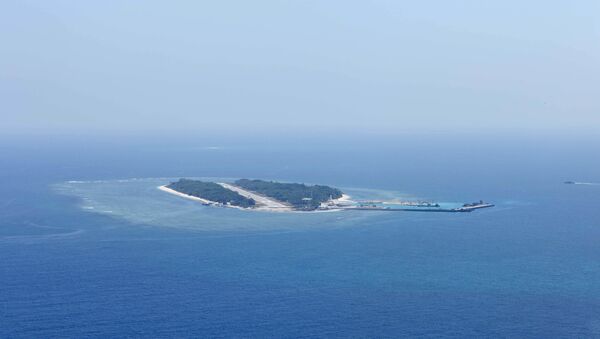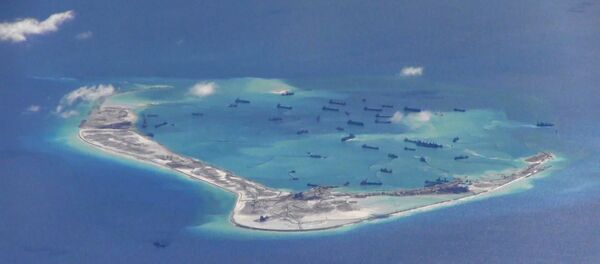The Hague-based Permanent Court of Arbitration's decision on the South China Sea is "null and void" and Beijing does not accept or acknowledge it, the Chinese Foreign Ministry said Tuesday.
"With regard to the award rendered on 12 July 2016 by the Arbitral Tribunal in the South China Sea arbitration established at the unilateral request of the Republic of the Philippines…the Ministry of Foreign Affairs of the People's Republic of China solemnly declares that the award is null and void and has no binding force. China neither accepts nor recognizes it," the ministry said in a statement.
Earlier on Tuesday, the Hague-based Permanent Court of Arbitration ruled that China has no legal basis to claim historic rights to South China Sea resources.
"The Tribunal concluded that there was no legal basis for China to claim historic rights to resources within the sea areas falling within the ‘nine-dash line’," the court said in a press release.
"Accordingly, the Tribunal concluded that, to the extent China had historic rights to resources in the waters of the South China Sea, such rights were extinguished to the extent they were incompatible with the exclusive economic zones provided for in the Convention," the court said.
The court also ruled that China violated sovereign rights of the Philippines in the country’s exclusive economic zone and created serious risk of collision and danger to Philippine ships in the South China Sea.
"The Tribunal found that Chinese law enforcement vessels had repeatedly approached the Philippine vessels at high speed and sought to cross ahead of them at close distances, creating serious risk of collision and danger to Philippine ships and personnel," the press release said.
The court also added that China caused severe harm to Spratly Islands coral reef environment.




